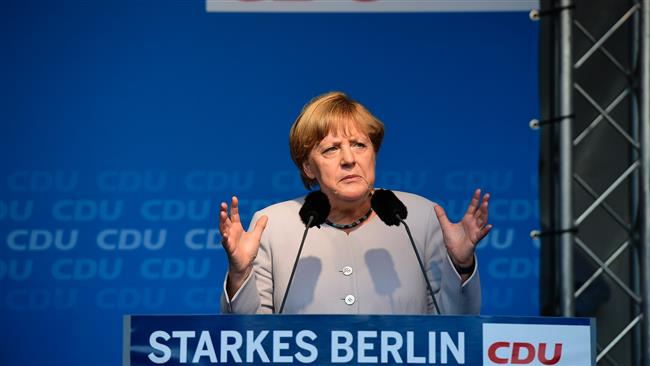-
Tips for becoming a good boxer - November 6, 2020
-
7 expert tips for making your hens night a memorable one - November 6, 2020
-
5 reasons to host your Christmas party on a cruise boat - November 6, 2020
-
What to do when you’re charged with a crime - November 6, 2020
-
Should you get one or multiple dogs? Here’s all you need to know - November 3, 2020
-
A Guide: How to Build Your Very Own Magic Mirror - February 14, 2019
-
Our Top Inspirational Baseball Stars - November 24, 2018
-
Five Tech Tools That Will Help You Turn Your Blog into a Business - November 24, 2018
-
How to Indulge on Vacation without Expanding Your Waist - November 9, 2018
-
5 Strategies for Businesses to Appeal to Today’s Increasingly Mobile-Crazed Customers - November 9, 2018
Merkel’s party defeated by far right-wing in German state elections
The beleaguered Chancellor, who is dropping in popularity daily in opinion polls, admitted that it was indeed her own mass migration policies that had led to the anti-mass migration Alternative for Germany party (AfD) relegating the CDU to third place in Ms. Merkel’s home state, reports Die Welt.
Advertisement
For the Alternative for Germany (AfD) party to even compete with Angela Merkel’s Christian Democrats in a regional election is remarkable, given Germany’s cultural and institutional aversion to parties outside the consensual centre-ground.
The CDU gained 19 percent of the vote, down from 23 percent in 2011.
Merkel said she was “deeply dissatisfied with the outcome of the election”, conceding that campaigning had been dominated by the influx of one million asylum seekers to Germany a year ago.
Frauke Petry, co-leader of the AfD, told Reuters the result was a “slap in the face” for Merkel.
“Perhaps this is the beginning of the end for Chancellor Merkel”, Leif-Erik Holm, the AfD’s regional leader.
Nearly exactly a year after Mrs Merkel opened Germany’s borders to more than a million asylum seekers, her party was beaten into third place in her own parliamentary constituency, according to preliminary exit polls.
In the sprawling farming and coastal state of Mecklenburg-Western Pomerania, where economic regeneration and jobs used to top residents’ concerns, the issue of refugees and integration has become the deciding factor for one in two voters. The relocation of asylum seekers across member states under an European Union quota system is also continuing, internal affairs spokesperson Natasha Bertaud said.
The chancellor says decisions taken by the government over recent months were right.
He said the state government’s positive record took a back seat for many voters, “because among a recognizable part, there was an explicit wish to voice displeasure and protest, and we saw that particularly strongly in the discussion about refugees”.
In Germany, her party – Christian Democratic Union – came in third in her home state in the northeastern part of the country.
“We need to agree an upper limit on the reduction of immigration as quickly as possible”, Scheuer told Tuesday’s edition of the “Passauer Neue Presse”.
Merkel said the party now has to “work intensively on winning back trust, and I am firmly convinced that we can only do that by simply showing that we are solving the problems”.
“We made a decision to fulfill our humanitarian tasks”, she told reporters at a news conference, according to a translator. “But she can deal with it – she has a year”. That helped push the far-right National Democratic Party out of its last state legislature. Its support dropped below the 5 percent needed to keep them, with many supporters switching to AfD.
The state has been run for the past decade by the parties that now run Germany.
Advertisement
Heath said analysts he spoke to believe Merkel still has an overwhelming likelihood of winning the national elections in 2017, but those predictions were based largely on the national weakness of the Social Democrats, now the junior partner in the coalition government. The SPD, Left, and Greens lost 14% of the vote to the AfD, according to The Guardian’s Berlin correspondent. The Social Democrats, who have governed the state since 1998, won with 30.6 percent. The next is September 18 in Berlin, where local issues are likely to feature more strongly.





























